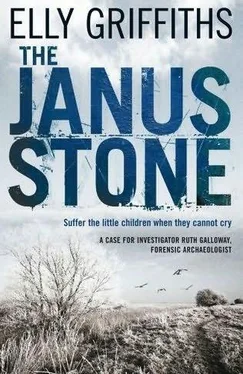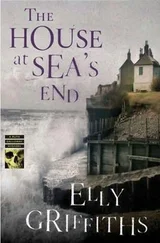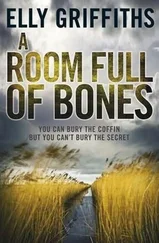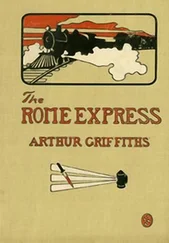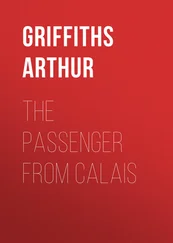Now, though, the sky is palest blue and only a light, companionable breeze blows through the coarse grass. Ruth and Max take the path through the dunes and see the beach spread out before them; the silver line of the sea, the deep pools reflecting the evening sky, the miles upon miles of rippling sand.
‘It’s beautiful,’ says Max. ‘I’d forgotten how open it is in Norfolk. Nothing but sand, sea and sky.’
‘Yes, it is beautiful,’ says Ruth, pleased that Max appreciates her beloved Saltmarsh. ‘It can be desolate in the winter but on evenings like this I think it’s the loveliest place on earth.’
‘I like the desolation too,’ says Max, looking out towards the retreating tide. The seagulls are swooping low over the waves and the shouts of the children seem thin on the evening air.
Ruth looks at him curiously. She knows what he means. Sometimes the Saltmarsh’s sheer loneliness and splendour gives her a thrill of almost sexual pleasure. But she hadn’t expected Max to feel the same. Doesn’t he come from Brighton, where the beach is more about kiss-me-quick hats than desolate beauty? But he was brought up in Norfolk, she reminds herself.
They walk towards the bonfire, very black against the white sand. Cathbad, wearing Druid’s robes and the purple cloak is supervising the stacking of wood but when he sees Ruth he breaks away with arms outstretched.
‘Ruth!’ They hug and Ruth feels Cathbad’s beard tickling her cheek.
‘Cathbad, this is my friend Max.’
‘Welcome!’ Cathbad gives Max a two-handed ‘vicar’s’ handshake. Indeed, in his white robes, he looks not unlike a priest greeting parishioners at the door of his church. Of course, Cathbad would say that this is just what the Saltmarsh is – a church, sacred ground. After all, man has worshipped here for hundreds, thousands, of years; first the Bronze Age people building their henge and then the Iron Agers who buried bodies and treasure at the point where the sea meets the land. It was one of these bodies that Ruth discovered last year.
‘Good to meet you,’ says Max. ‘This is a wonderful spot.’
‘Yes,’ says Cathbad, looking closely at Max. ‘This is a liminal zone, the bridge between life and death.’
‘Erik Anderssen 1998,’ says Max immediately. ‘I love that book. Anderssen was one of my heroes when I was a student.’
Ruth can’t stop herself exclaiming. ‘Did you know Erik?’
‘I never met him but I’ve read almost everything he ever wrote. No one has ever understood prehistory better.’
‘He was a wonderful man,’ says Cathbad. ‘Ruth here was very close to him.’
‘Were you?’ Max turns to Ruth.
‘Well, I was his student,’ Ruth says guardedly. She still finds it hard to talk about Erik.
‘His favourite student,’ says Cathbad rather aggressively.
‘I wouldn’t go that far.’
‘I wish I’d met him,’ says Max lightly.
‘We’ve brought booze,’ says Ruth, wishing to turn the subject away from life and death.
‘Great,’ says Cathbad, ‘the gods need their libation. Freya over there is in charge of drinks.’
Freya, a wispy blonde in blue robes, takes their bottles and stows them away carefully. She then offers them punch from a copper cauldron. Ruth sniffs suspiciously at her plastic cup as they walk away.
‘What’s in this?’ she asks. ‘Battery acid?’
‘Well, you did say that he works in the chemistry department.’
‘He used to be an archaeologist, you know.’
‘Is that how he knew Erik?’
‘Yes. Erik was his tutor at university. Then they met again on the henge dig. You know, the one I told you about? Cathbad was one of the Druids protesting about us moving the timbers.’
‘You can see their point,’ says Max slowly, looking out across the expanse of sand, perhaps imagining the henge in place, the circle of wooden posts stark against the sky. As for Ruth, the image is so clear that she is surprised it hasn’t materialised in front of her, complete with Erik kneeling in the centre, rhapsodising about the preservation of the wood.
‘Erik sympathised,’ she says, ‘but the sea was getting closer all the time. It would have destroyed the henge in the end.’
Max smiles. ‘Destroyed or changed?’
For a second, Ruth thinks about the Latin motto on the archway at Woolmarket Street: Omnia Mutantur, Nihil Interit , everything changes, nothing perishes, and she feels a sudden chill, as if a cold hand has touched her shoulder.
‘You are a fan of Erik’s,’ is all she says. Erik believed in the cycle of change, decay and rebirth. Has he been reborn? Sometimes it seems impossible that Erik’s vibrant spirit can really have died alongside his body. Surely there’s some blue-eyed baby somewhere that is Erik having a second go at life. Or some water spirit maybe, some animal – a seal or a sleek arctic fox.
The bonfire is apparently completed. As the light fades Cathbad and the other Druids join hands and encircle it, chanting and singing. The children join in too, running in and out of the adults, laughing and excited. Max, Ruth and the other non-Druids stand nearby, torn between self-consciousness and interest. There is something magnificent about the spectacle, thinks Ruth, the tiny dark figures silhouetted against the sky, the towering bonfire and the faint crash of the waves in the background.
Cathbad has some trouble lighting his symbolic firebrand. The wind keeps whipping out the flame and, eventually, Freya has to shield him with her cloak. But finally he raises aloft the burning brand. ‘Goddess Brigid, accept our offering!’
Flames lick around the base of the bonfire. The children run around, shrieking with excitement. The adults are chanting again but then someone starts to play the guitar and the chanting turns into something cosier, something more like a folk song. There is quite a crowd now. Ruth recognises lots of faces from the university and from the field team, including Ted and Trace. Slightly to Ruth’s irritation, Max greets Trace enthusiastically. ‘She’s been working on the Swaffham site. She’s a good archaeologist. Very knowledgeable about the Romans.’
‘Mmm.’ Ruth’s appreciation of Trace’s skills is not improved by the fact that she is looking rather stunning in a black T-shirt and black leather trousers. ‘Let’s go and sit down somewhere,’ she says. Her back is killing her.
They sit in the shelter of one of the dunes, eating vegetarian hot dogs. Max has managed to annex one of the better bottles of wine and Ruth is drinking orange juice. Max doesn’t comment on her abstemiousness. They talk about the two sites – the Roman excavation and the seventy-five luxury apartments – about the two decapitated bodies, about the Roman gods, particularly Janus, the two-faced God. ‘He’s also connected to the spring and the harvest,’ says Max. ‘He’s not just the god of doorways but of any time of transition and change, of progression from one condition to another.’
‘Is that because he can look backwards and forwards at the same time?’
‘Yes, it also helped him pursue women, the nymph Carna, for example.’
‘Did he catch her?’
‘Yes, and in return for her favours he gave her power over all door hinges.’
Ruth laughs. ‘So, instead of WD40 we should pray to Carna?’
‘It’s worth a try.’
Max pours more wine but Ruth has caught sight of a modern nymph, walking towards them across the sand. Shona, wearing a shawl and a flowing purple dress, accompanied by a very unwelcome acolyte – Phil.
‘Ruth! What are you doing skulking here?’
Skulking, thinks Ruth, getting to her feet, is really a very unattractive way of putting it. She had been feeling rather good, lounging on the sand beside a good-looking and intelligent man. Now she feels foolish and somehow rather disreputable.
Читать дальше
